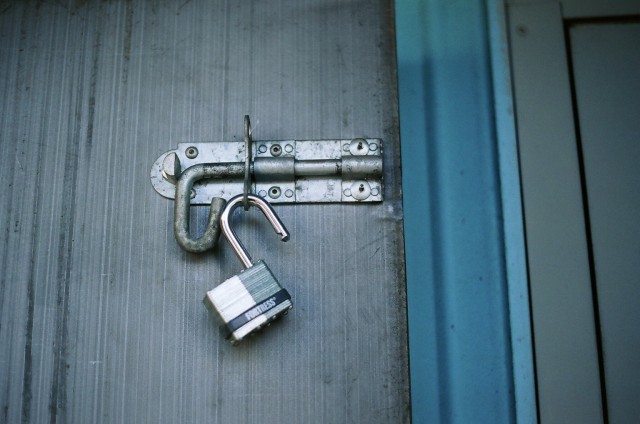
The legality of unlocking one's cell phone to run on any network has flipped back and forth in the past several years. It was deemed illegal under the Digital Millennium Copyright Act—then it was made legal by the Library of Congress in an exception to the DMCA passed in 2006. The Library chose not to renew the exemption in 2012, however, and it expired in January of this year. That inspired a petition to the White House, which a few weeks ago passed the 100,000 signature mark. The White House then promised to respond.
Today the White House posted its response to the petition. The administration opposes the Library of Congress' position, and it called for legislation to make consumers' freedom to unlock their phones crystal clear.
"If you have paid for your mobile device, and aren't bound by a service agreement or other obligation, you should be able to use it on another network," writes R. David Edelman, a White House advisor. "It's common sense, crucial for protecting consumer choice, and important for ensuring we continue to have the vibrant, competitive wireless market that delivers innovative products and solid service to meet consumers' needs."
The response tries to be diplomatic toward the Library of Congress. "The law gives the Librarian the authority to establish or eliminate exceptions—and we respect that process," writes Edelman. But his response also notes that "the DMCA exception process is a rigid and imperfect fit for this telecommunications issue," and the problem warrants a broader response.
The Library of Congress has its own statement out. The statement uses awkward language to acknowledge it's out of step with the White House, without really admitting it was wrong in the first place.
"The rulemaking is a technical, legal proceeding and involves a lengthy public process," reads the Library's statement. "It does not permit the US Copyright Office to create permanent exemptions to the law. As designed by Congress, the rulemaking serves a very important function, but it was not intended to be a substitute for deliberations of broader public policy."
Edelman's statement ends by calling for "narrow legislative fixes" that would make it clear: unlocking your cell phone isn't a crime. In addition to legislation, the White House also calls for the FCC to play a role. FCC Chairman Julius Genachowski released a statement (PDF) this morning saying that his agency is "looking into whether the agency, wireless providers, or others should take action to preserve consumers' ability to unlock their mobile phones."
This White House action may be able to solve this particular problem. But it doesn't change the fact that the DMCA exemption process is an unwieldy and problematic system attempting to deal with the big economic questions brought up by copyright enforcement in the digital age.
Long road for college phone unlocker
Overall, the petition response is a big victory for Sina Khanifar, the San Francisco entrepreneur who founded OpenSignal and started the petition. Khanifar recently told his story to Derek Khanna, and it was published on The Atlantic's website. Khanifar unlocked his own cell phone back in 2004 and then tried to sell software to allow others to do the same on a website he created called Cell-Unlock.com. However, he was soon on the receiving end of a "cease and desist" letter from Motorola saying he was breaking the DMCA.
Without cell phone unlocking, many consumers will be forced into the position of needing to buy a new phone if they want to switch carriers. It can also lead to exorbitant charges for international roaming. Those charges are what Khanifar was trying to avoid when he first unlocked his own phone back in 2005.
In an e-mail, Khanifar reflected to Ars on what has been accomplished and what still remains to be done:
As the White House said in the response, keeping unlocking legal is really "common sense," and I'm excited to see them recognizing this.
This is a big victory for consumers, and I'm glad to have played a part in it. A lot of people reacted skeptically when I originally started the petition, with lots of comments to the effect of "petitions don't do anything." The optimist in me is really glad to have proved them wrong. The White House just showed that they really do listen, and that they're willing to take action.
While I think this is wonderful, I think the real culprit here is Section 1201 of the DMCA, the controversial "anti-circumvention provision." I discussed with the White House the potential of pushing to have that provision amended or removed, and they want to continue the discussion.
Public Knowledge, a group that has long been calling for legalizing cell phone unlocking, also heralded the White House statement. However, the group noted that additional reforms to copyright are needed. "These problems will continue so long as the law is written in such a way that laws intended to protect artists can be abused to stifle competition," said Sherwin Siy of Public Knowledge.
reader comments
87